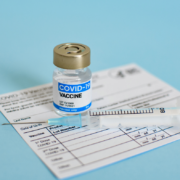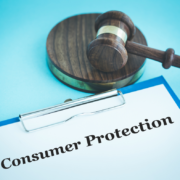Media Contact: Lisa McDonald, Vice President of Communications, 202,207,2829
New York, NY — The National Consumers League and Sports Fans Coalition (SFC) are calling on New York legislators to amend A8651/S822 warning that as currently written, it could further entrench monopolistic control over ticket sales in the Empire State and harm consumers.
While the proposed legislation includes many pro-consumer provisions supported by both organizations, it was unexpectedly changed prior to introduction to contain special interest handouts that will strengthen Live Nation/Ticketmaster’s control of the ticketing market in the state, potentially weakening the landmark monopoly case underway by New York Attorney General Tish James, 39 other state attorneys general, and the U.S. Department of Justice. The National Consumers League and Sports Fans Coalition intended to support the introduction of this legislation after many months working with the sponsoring legislators, though now oppose the legislation unless it is amended.
“We’re all in for more transparency and stronger refund rules. That’s solid work. But this bill, as written, also opens a backdoor that could let the monopoly cartel lock out fans from fair resale and deepen its grip on live events forcing safe, protected ticket sales offline where consumers will get scammed many times over,” said Brian Hess, Executive Director of Sports Fans Coalition.
As detailed in a letter sent to lawmakers on May 28, the groups’ chief concern is that under this legislation Ticketmaster, as the largest seller of tickets in New York, would be handed new and outsized control to dictate how and whether tickets already sold can be resold by the ticketholder who purchased them.
“Live Nation and its affiliated artists and venues are pitching ticket resale restrictions as a panacea for all of fans’ frustrations with the ticket marketplace. Unfortunately, the reality is that the proposed restrictions are a fast track to more fraud. Artificially limiting consumer access to ticket marketplaces pushes fans into the shadows of the internet—Facebook Marketplace, Craigslist, and shady international sites—where scammers thrive. If New York moves forward with this bill, it must also boost enforcement resources for Attorney General Letitia James. Without it, fans will be left defenseless in a growing black market,” said John Breyault, vice-president of the National Consumers League. “
Fans are right to be frustrated when they are priced out of their favorite events. However, event organizers typically put their events on sale months ahead of an event. In the intervening time, life happens – kids get sick, jobs get moved, plans change. It is important that consumers have access to competitive ticket marketplaces where they can sell and buy unwanted tickets. This also gives fans access to discounted tickets. Indeed, the data bears this out. A recent study found that 55% of events offered tickets below the original price, resulting in in more than $440 million in savings nationally and $41.7 million in savings in New York State in 2023.
If passed, the legislation could restrict a ticketholder who cannot attend an event at the last minute from finding a legitimate secondary market source to sell their ticket. By comparison, Live Nation and the artists and venues it controls would be free to dynamically price tickets. The effect is that a ticket purchased in the same row for the same event can be priced dramatically differently from consumer to consumer based on the vast amounts of personal data Ticketmaster has about concertgoers.
Ticketmaster (which is owned by Live Nation) is already the second largest ticket resale marketplace in the nation. The likely effect of allowing Live Nation and the artists and venues it controls to dictate the terms of ticket resale is that Ticketmaster will gobble up even more of the resale market than it currently has. If the legislation passes, we also anticipate that Live Nation-controlled artists and venues will take steps to cut “preferred reseller” deals with Ticketmaster. This will allow Ticketmaster to double dip on fees for the same pair of tickets – during their initial sale, and again when they are resold on the Ticketmaster platform.
The bill does contain several pro-fan provisions. For example, the bill would require disclosure of some deceptive ticket holdbacks. Holdbacks (also known as allocations) are a nefarious practice where Ticketmaster, venues, artists and teams secretly create fake scarcity when tickets go on sale. Through deceptive holdbacks, so-called primary ticket sellers (Ticketmaster, venue box offices, artists) slowly drip tickets onto the market to create the illusion of a sold-out event. The legislation would make this longtime industry secret illegal for the largest events, requiring the disclosure of holdbacks and limiting the number of tickets that can be held back. An informed consumer, knowing how many tickets remain for an event for future sale, is more capable of making the smartest purchase decision, whether to buy their tickets immediately, wait for more to be released in the weeks or months ahead, or comparison shop form other sellers. Additionally, the bill proposes that if a postponed event isn’t rescheduled within three months, ticket sellers must issue refunds—a provision that advocates strongly support.
A8651/S822 is a bill that our organizations would very much like to support. Unfortunately, special interests have allowed it to become a vehicle for Live Nation’s monopoly ambitions in New York. We urge Senator Skoufis to work with us to ensure that fans – not Live Nation and the artists and venues it controls – are the real winners from this bill.
###
About the National Consumers League (NCL)
The National Consumers League, founded in 1899, is America’s pioneer consumer organization. Our mission is to protect and promote social and economic justice for consumers and workers in the United States and abroad. For more information, visit www.nclnet.org.
























